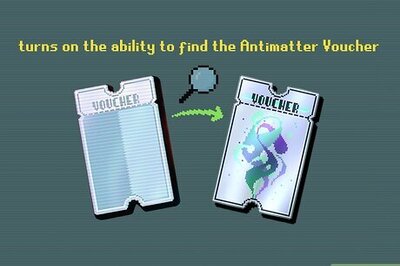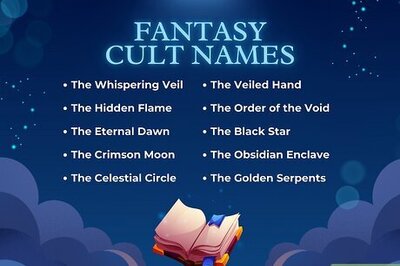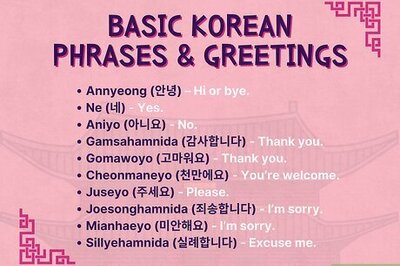
views
When the Jain Hawala scandal was unearthed in 1995, someone asked the then Union Home Minister Shankarrao Chavan how Sharad Pawar’s name did not figure in the scam. Chavan said dryly, “Do you not know all hawala transactions are based on trust.”
The perception of trust deficit has been an important factor in Pawar’s long and eventful political journey. Pawar’s latest move to ridicule Rahul Gandhi’s call for a parliamentary probe into the Adani Group over a report by US short-seller Hindenburg Research is a severe blow to the cause of Opposition unity. It is unlikely that Rahul or the Congress would heed Pawar’s advice. The Congress finds itself far more entangled with Pawar in Maharashtra too, where a fragile unity exists between the Pawar-led Nationalist Congress Party, the Shiv Sena group headed by Uddhav Thackeray and the grand old Congress.
Pawar has made the Opposition a bit more edgy with his another statement relating to Prime Minister Narendra Modi’s educational qualifications. Just like Rahul’s obsession with Adani, the Aam Admi Party (AAP) is making a big issue about PM’s office reluctance to share his degrees. Pawar said that he believes such discussions are a waste of time and resources.
At a personal level, Rahul has more reasons to have made an imprudent investment in Pawar’s advice. Barely a fortnight ago, he had willy-nilly accepted Pawar’s advice not to target Hindutva icon Vir Savarkar, ostensibly, for the sake of Opposition unity for the 2024 Lok Sabha elections. The precarious compromise has left Rahul with eggs on his face. The Congress now has an annoying choice of disagreeing with Pawar yet putting a façade of unity or bitterly parting ways with the NCP in Maharashtra.
Pawar has been a seasoned campaigner in the art of double-speak. He understands that for Rahul and the Congress, parting ways with the NCP is not a viable option in Maharashtra. A politician among politicians, Pawar, 82 now, stands tallest among politicians of all hues and shades in present-day India. He was often seen as a prime ministerial material — maverick, hands-on, fox-like, crafty. Since 1976, Pawar never lost an electoral battle, a distinction that eluded even former prime ministers like Indira Gandhi and Atal Bihari Vajpayee.
Looking back at Pawar’s impressive political career, the politician offers a bag full of turning the tables on friends and associates. He became Maharashtra’s chief minister for the first time, aged just 38 in 1978, when he treacherously toppled the Congress government of Vasantdada Patil, split the party, and formed a government in coalition with the Janata Party under the banner of the Progressive Democratic Front (PDF).
In 1997-98, the emergence of Sonia Gandhi as supreme leader of the Congress rattled Pawar. A few days before PA Sangma, Tariq Anwar and he revolted against Sonia on grounds of her foreign origins in May 1999, Pawar had hosted a soiree on the rear lawns of his Gurudwara Rakabganj Road bungalow, which most thought, quite mistakenly, was in celebration of Sonia handing him charge of negotiations with Jayalalithaa and other potential allies. Pawar, in a crisp white bus-shirt, chose to serve burgundy Baramati wine with a tale. “Actually, I told my leader (till then, still Sonia) that I am a visionary because I signed up an Italian collaborator for producing this wine 20 years ago.” He revealed that for the past many years, he was growing a variety of grapes called Sharad Seedless, named after him and has been championing the cause of wine.
Pawar seemed all reconciled to accept Sonia as his leader. On May 17, 1999, everyone in the Congress Working Committee (CWC) meet called to finalise candidates for the Goa Assembly polls as they were growing restless, dying to catch up with India’s cricket World Cup opener in England. Then, Sharad Pawar smiled and PA Sangma stood up. When the mighty Maratha signalled, the diminutive Samurai with a swish of his razor-sharp tongue built a case for how the BJP campaign against Sonia Gandhi’s foreign origin was seeping deep down to even remote villages. Then came the unkindest cut. “We know very little about you, about your parents,” Sangma told her.
Mastermind Pawar had planned a revolt when a woman bureaucrat from Maharashtra had told Pawar that she got a survey done which revealed that if he revolts against Sonia on grounds of her foreign origins, he would be hailed as “second Lokmanya Tilak.” It is a different story that when the Maharashtra Assembly polls were held, Pawar’s newly formed Nationalist Party of India finished behind the Congress and the rebel had to form a coalition government, playing the role of a minor partner in the state that he once considered his fiefdom.
Rahul Gandhi must realise that unlike him, Pawar has been a forever optimist and consummate player in power politics. It was said that once PV Narasimha Rao asked him in jest how two plus two would add up. Pawar’s reply was prompt and crisp, “It depends whether you are buying or selling.”
The writer is a Visiting Fellow at the Observer Research Foundation. A well-known political analyst, he has written several books, including ‘24 Akbar Road’ and ‘Sonia: A Biography’. The views expressed in this article are those of the author and do not represent the stand of this publication.
Read all the Latest Opinions here




















Comments
0 comment